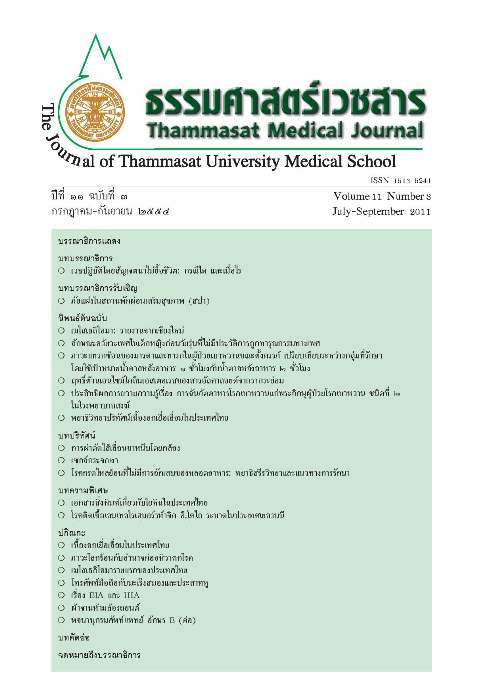Factors Predicting Intention for Cervical Cancer Screening among Women Aged 30 to 60 Years in Ratchaburi Province, Thailand: Population-based Study
Keywords:
การตรวจคัดกรองมะเร็งคอมดลูก, ความตั้งใจ, cervical cancer screening, intentionAbstract
Cervical cancer is the second most common cancer among women worldwide. Cervical cancer screening can help to detect cancer at an early stage for early treatment.
Objective: This descriptive study was conducted in order to predict an intention to receive cervical cancer screening among women aged 30 to 60 years in Ratchaburi province, Thailand. Four hundred and fi fty healthy urban women in this province were recruited by the multi-stage random sampling method.
Materials and Methods: The questionnaires were comprised of demographic data, attitude toward cervical cancer screening, subjective norm, perceived behavioral control, and intention to receive cervical cancer screening. Data were analyzed by using stepwise multiple regression analysis.
Results: This results of the study revealed that the subjective norm (SN) and perceived behavioral control (PBC) of factors were contributing signifi cantly to the variance accounted for 28.10 percent (R2 = 0.281, p < 0.01) in the intention to receive cervical cancer screening. Recommendations from individual spouse and nearby medical stuff are specific reasons for the intention to receive cervical cancer screening.
Conclusion: SN and PBC had important roles for intention to obtain cervical cancer screening. Campaigns for cervical cancer screening promotion should be also carried out in her spout.
Key words: cervical cancer screening, intention


